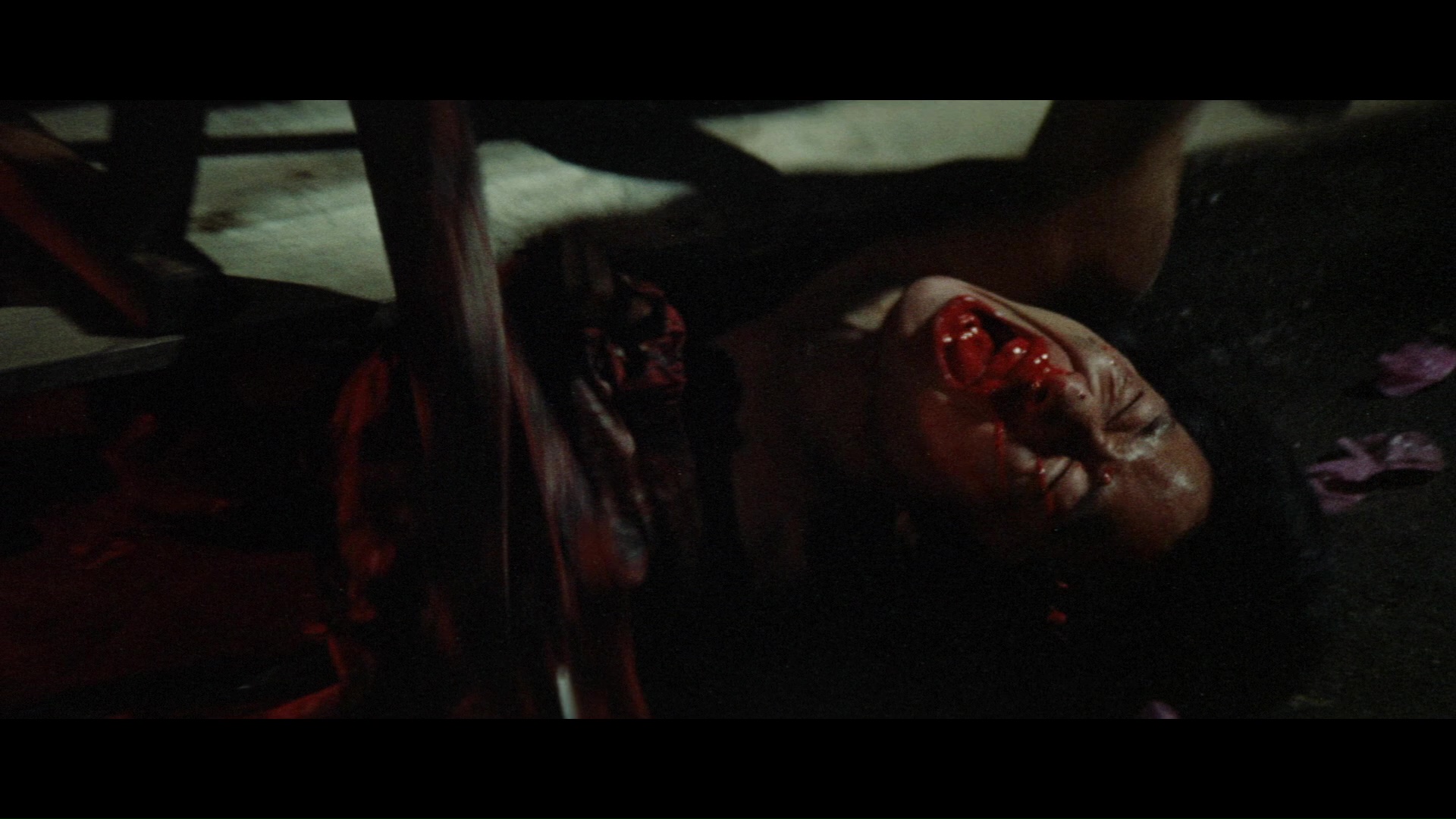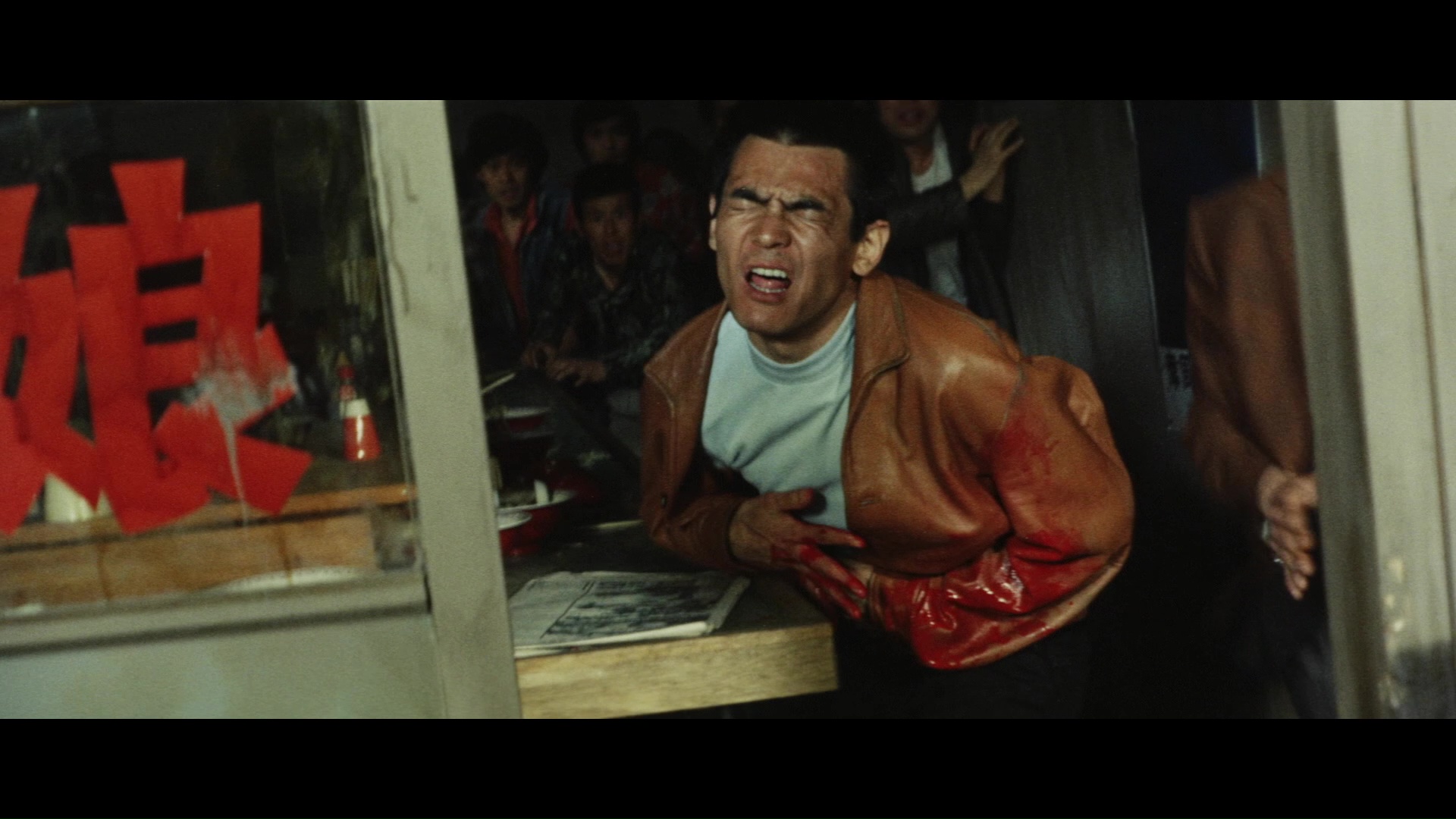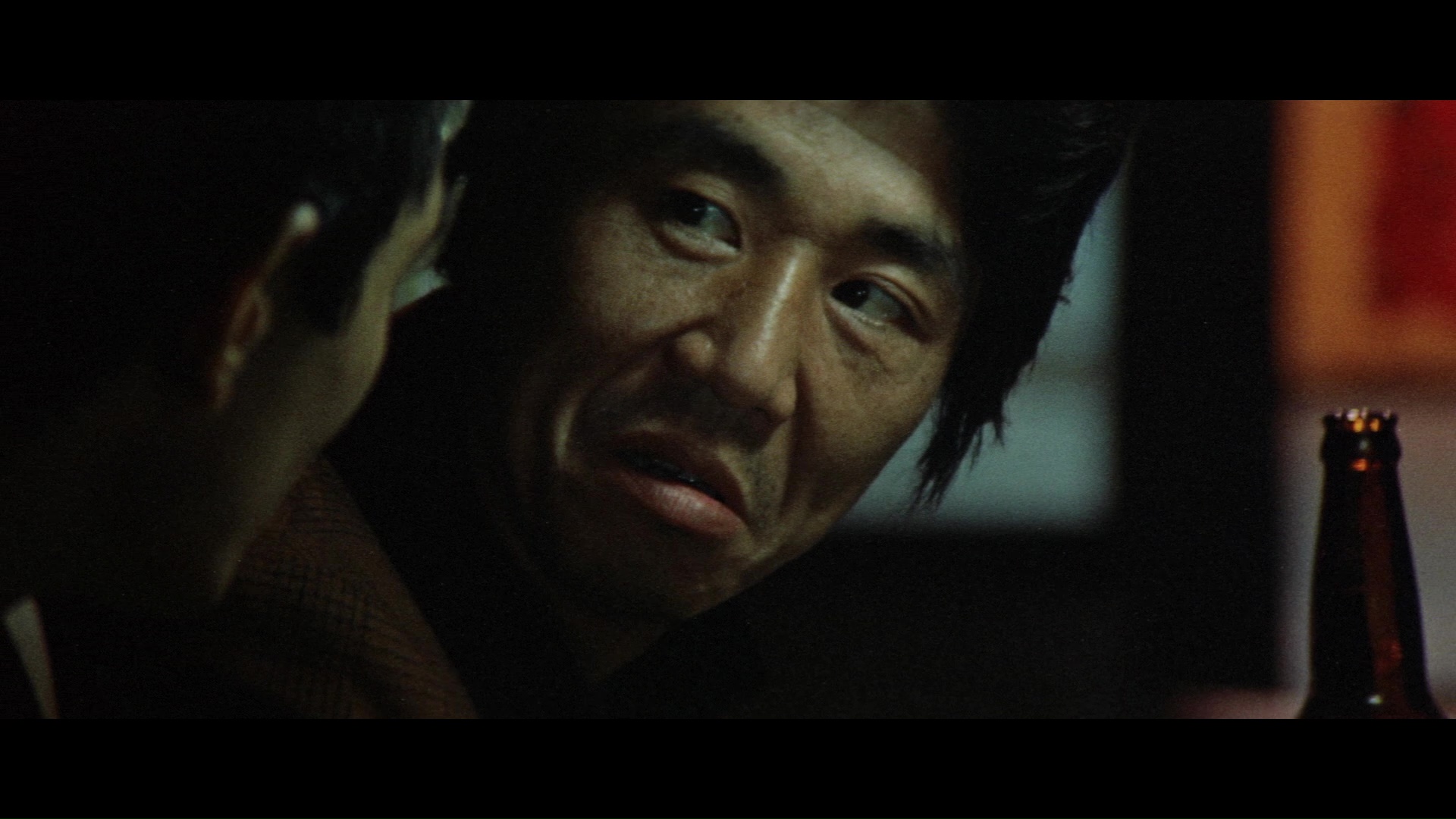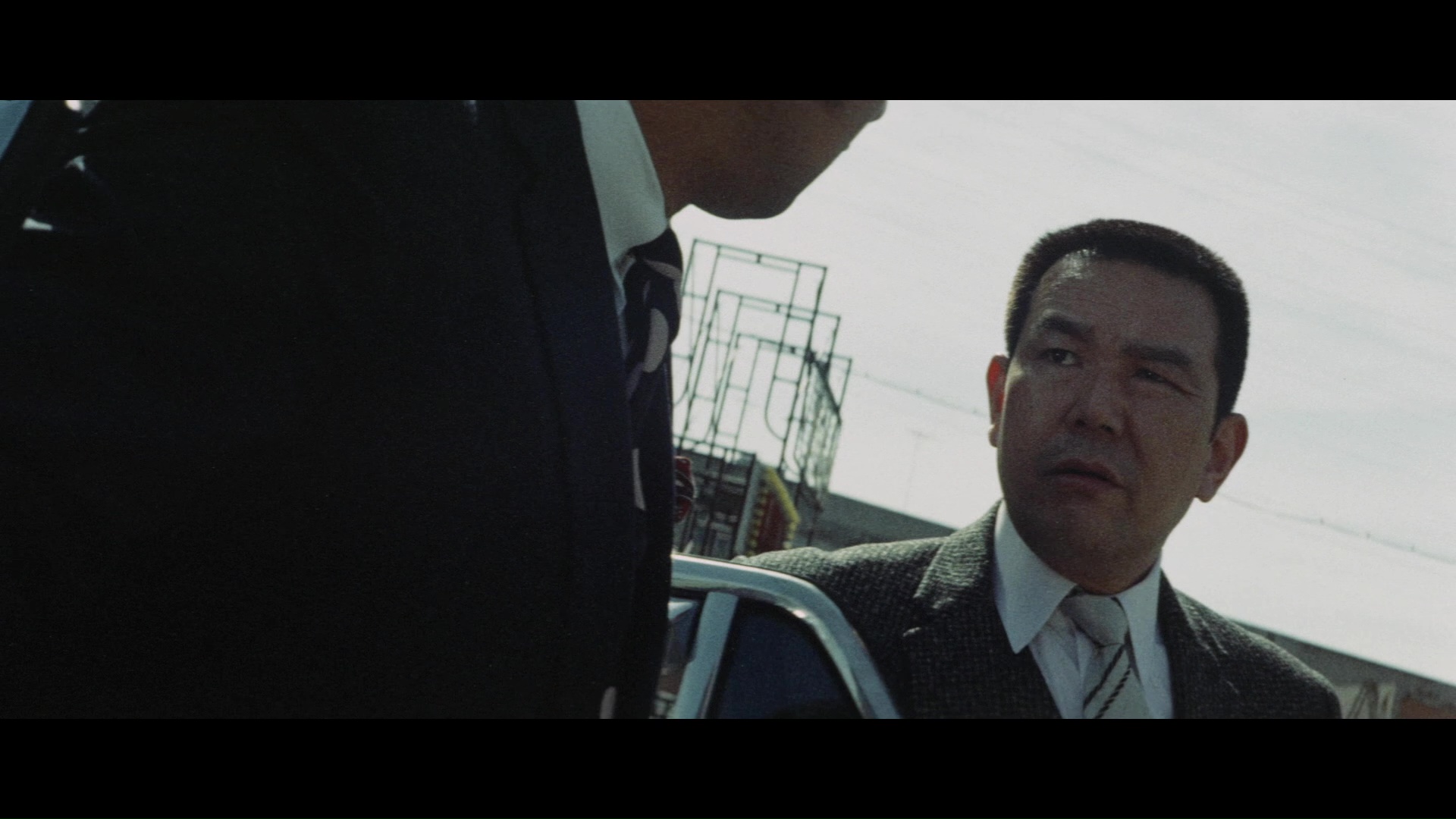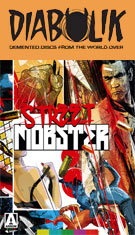
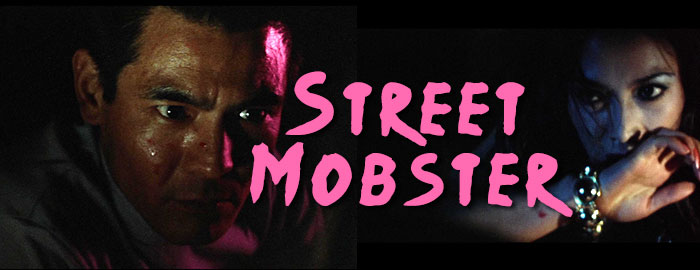
Color, 1972, 87 mins. 45 secs.
Directed by Kinji Fukasaku
Starring Bunta Sugawara, Noboru Andô, Mayumi Nagisa, Nobuo Yana
Arrow Video (Blu-ray) (US/UK RA/B HD), Home Vision (DVD) (US R1 NTSC), Eureka (DVD) (UK R2 PAL) / WS (2.35:1: (16:9)
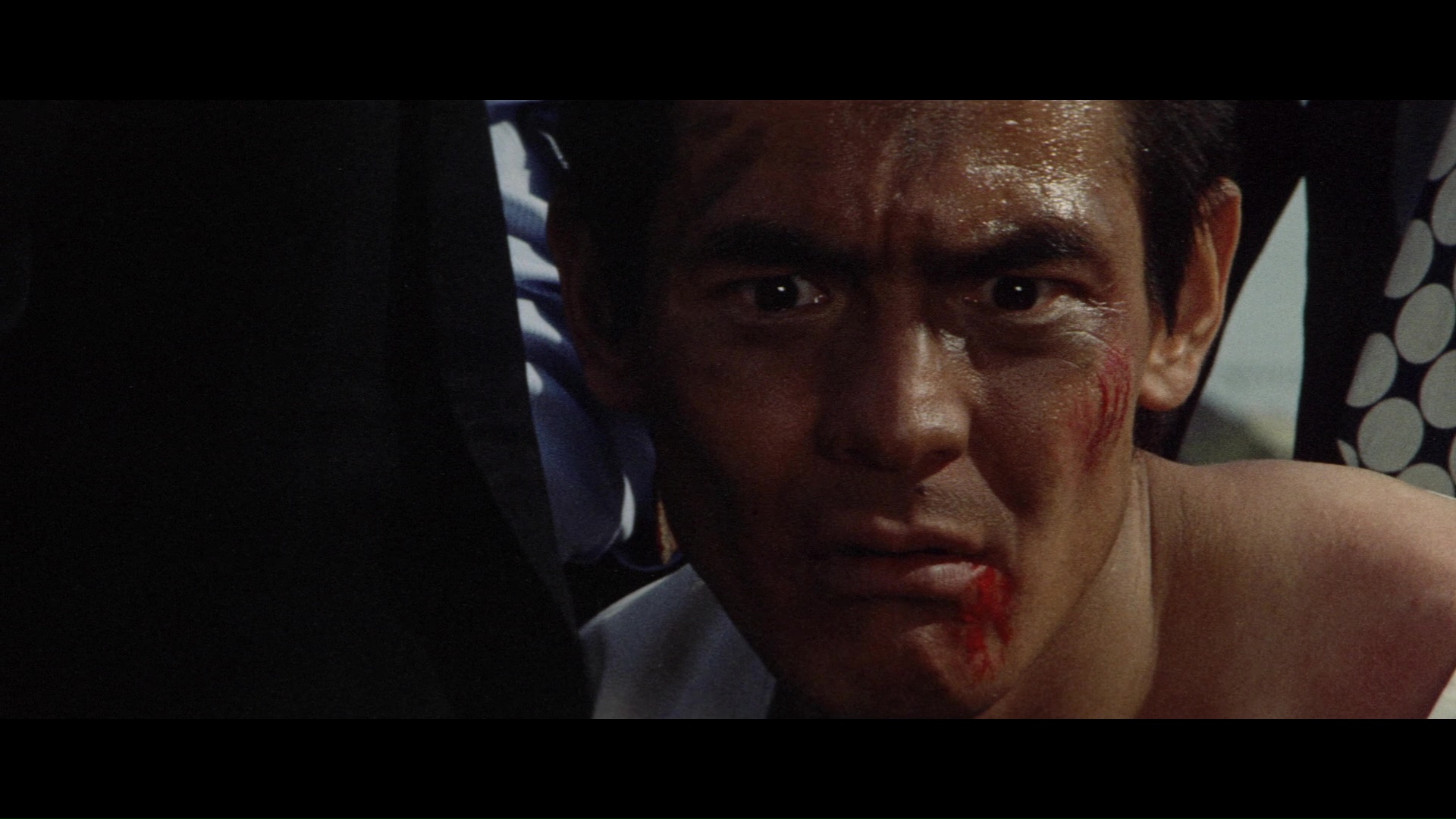 wild, stylized grenade tossed into
wild, stylized grenade tossed into 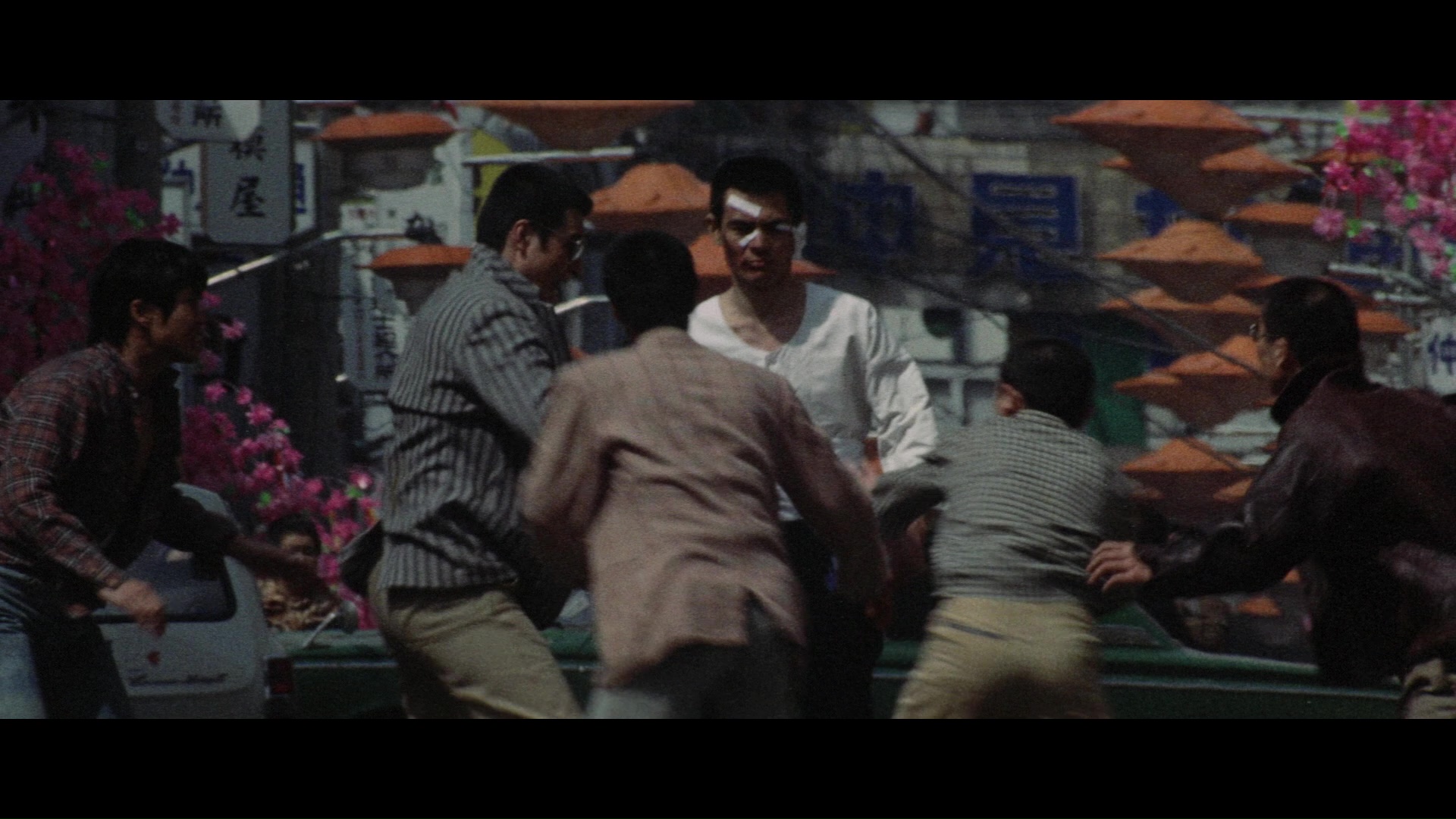 the world of Japanese yakuza films, Street Mobster was the last and most aggressive of a six-film string of gangster films from Toei starring Bunta Sugawara (Battles without Honor and Humanity), cast here as a deeply cynical and aggressive miscreant named Okita.
the world of Japanese yakuza films, Street Mobster was the last and most aggressive of a six-film string of gangster films from Toei starring Bunta Sugawara (Battles without Honor and Humanity), cast here as a deeply cynical and aggressive miscreant named Okita. 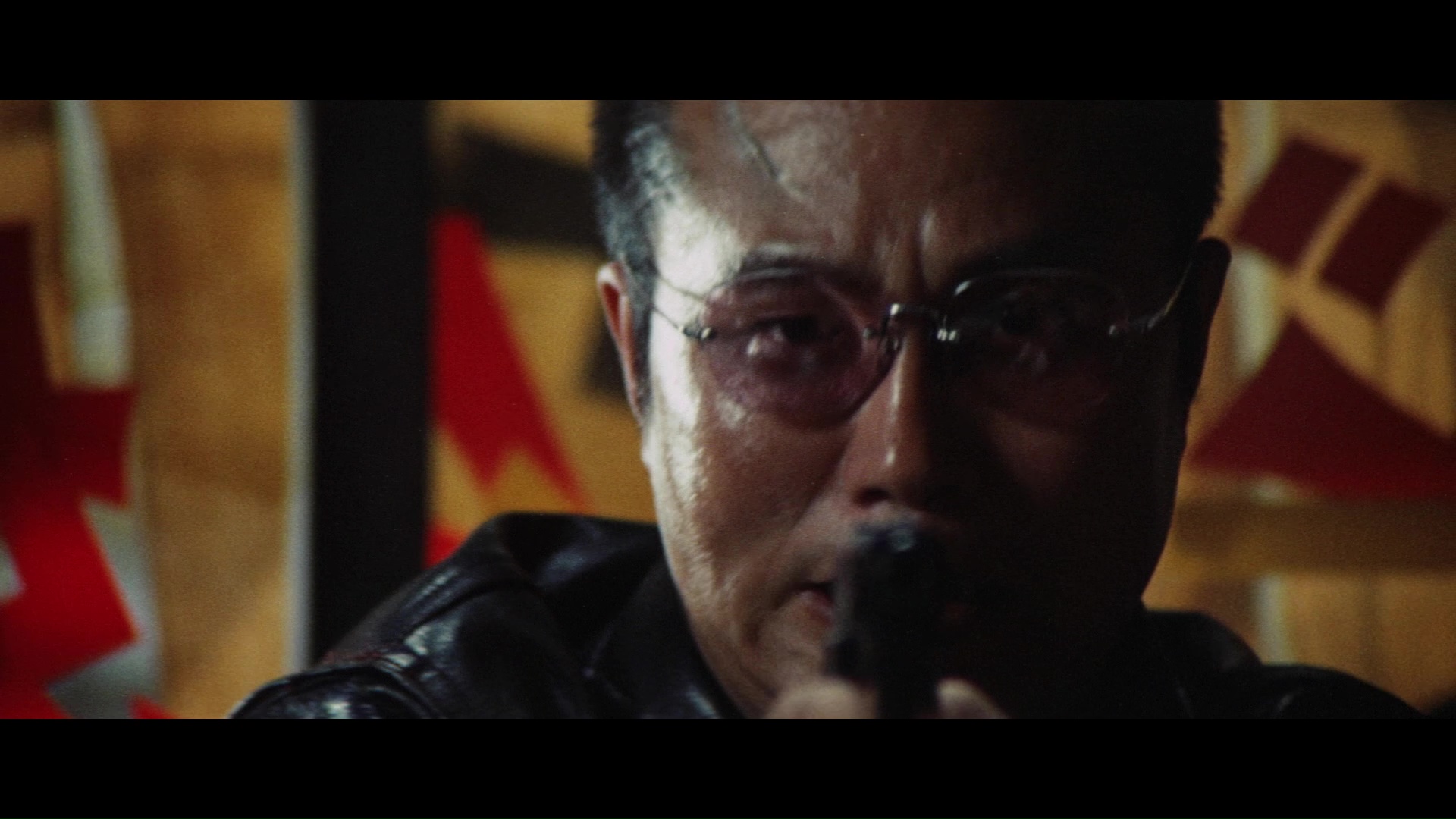 style. The filmmaker was really on a roll here coming right off of Sympathy for the Underdog and Under the Flag of the Rising Sun, with the Battles cycle to commence immediately afterwards.
style. The filmmaker was really on a roll here coming right off of Sympathy for the Underdog and Under the Flag of the Rising Sun, with the Battles cycle to commence immediately afterwards. 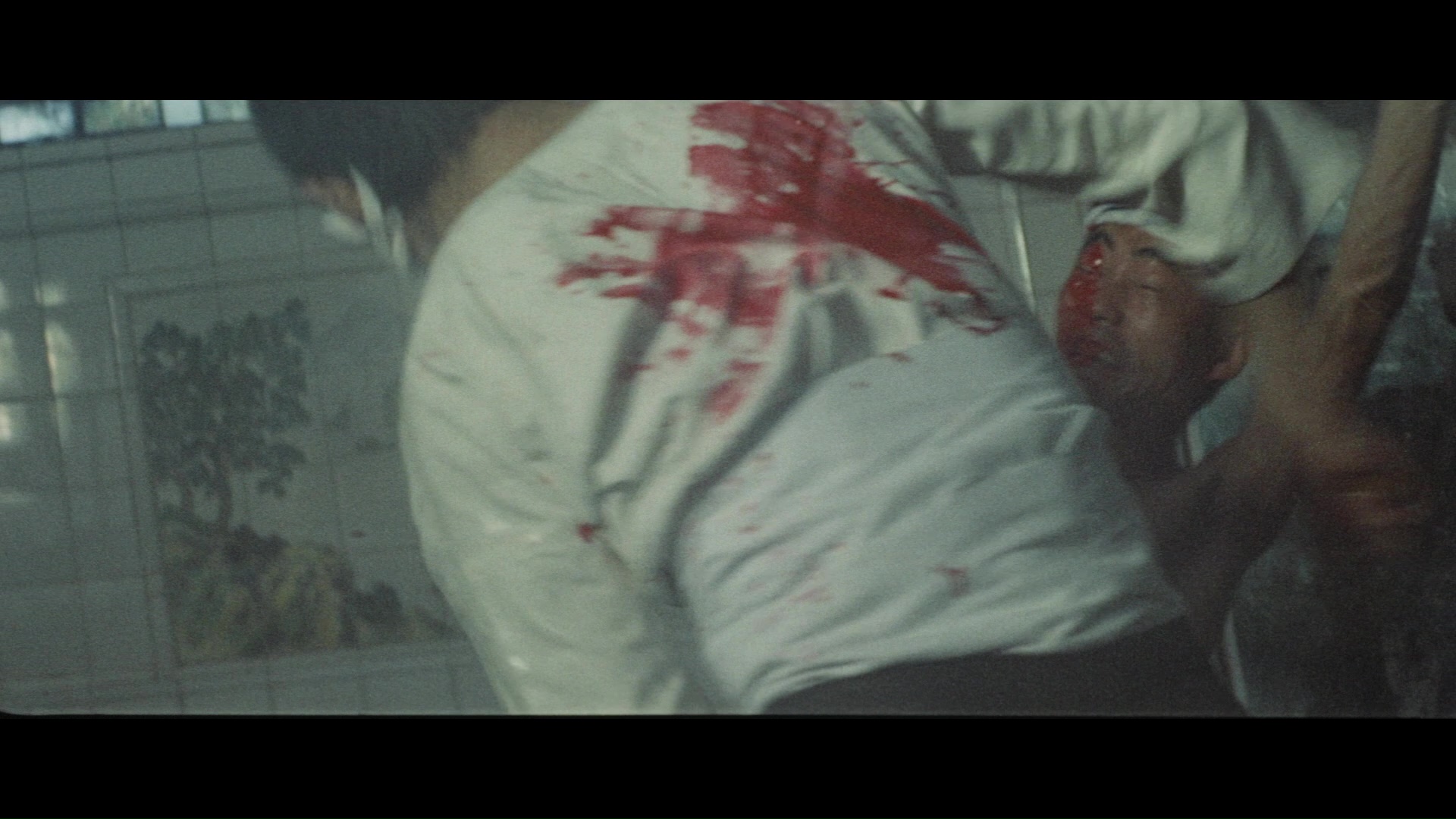 This would be his most graphic film to date, complete with numerous bloody scuffles and even working in several flashes of frontal nudity (a big cinematic taboo at the time). It's very much a film of 1972, complete with great street shots of long-haired youths and little touches clearly inspired by A Clockwork Orange and The French Connection but rendered in Fukasaku's unmistakable style.
This would be his most graphic film to date, complete with numerous bloody scuffles and even working in several flashes of frontal nudity (a big cinematic taboo at the time). It's very much a film of 1972, complete with great street shots of long-haired youths and little touches clearly inspired by A Clockwork Orange and The French Connection but rendered in Fukasaku's unmistakable style.  with an improved, presumably correct HD scan that adjusts the overly bright, flat black levels of the DVDs. It looks very moody, dark,
with an improved, presumably correct HD scan that adjusts the overly bright, flat black levels of the DVDs. It looks very moody, dark, 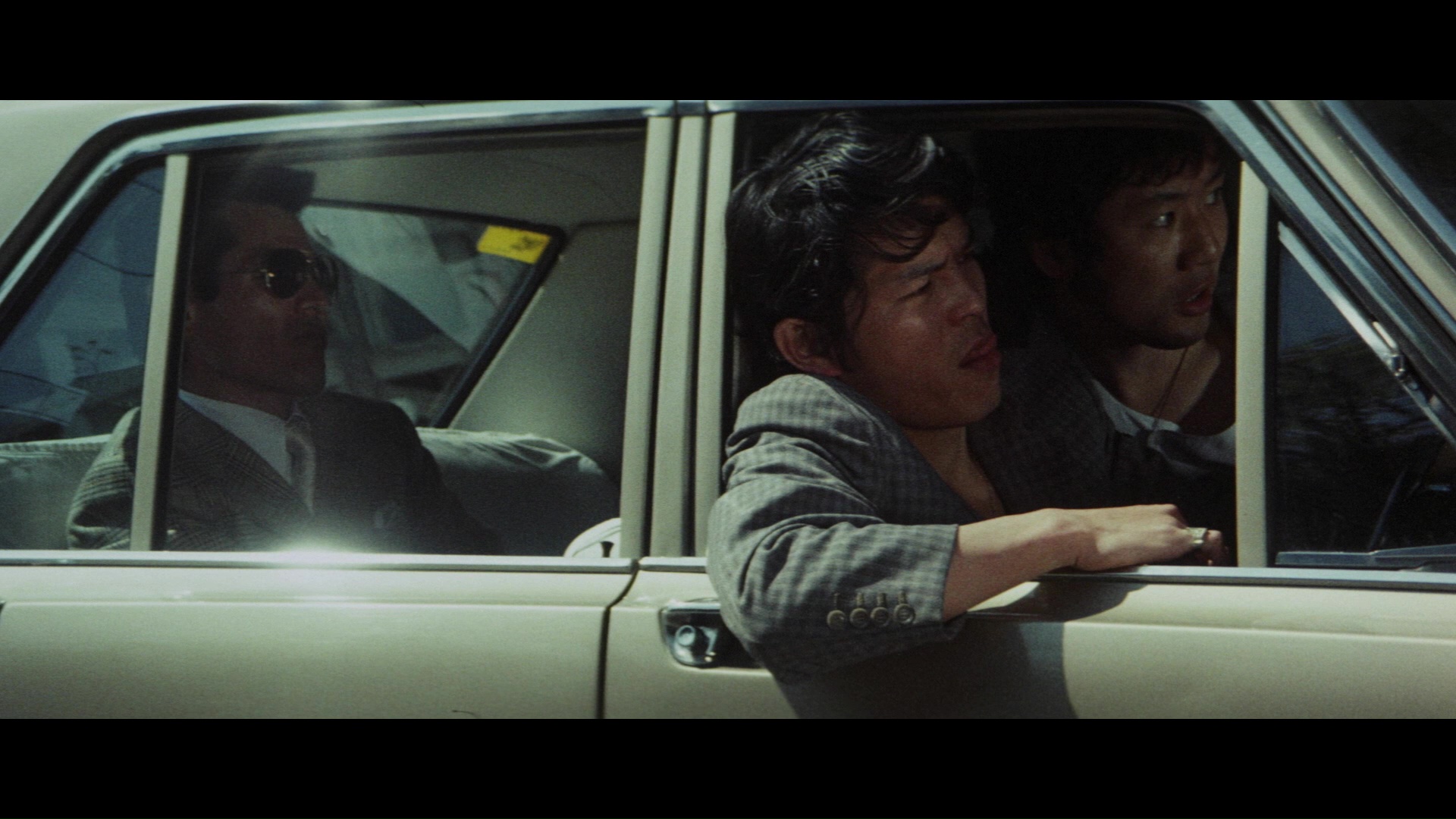 and rich now, with little bursts of color really popping out now. The fake blood looks a lot less orange now, too. The Japanese LPCM mono audio is also in fine shape, with optional (and sometimes quite profane) English subtitles provided. In addition to the caffeinated Japanese theatrical trailer (also subtitled), the film now sports an audio commentary by Tom Mes, who of course knows his stuff when it comes to Japanese cinema and delivers a soft-spoken but thorough account of the film's social commentary, the significance of its fictional disclaimer at the beginning, the "gray zone" of distribution it fell into for a long time, and the necessity of exaggerating and dramatizing the circumstances of yakuza life on film compared to the real thing. The packaging features reversible sleeve options including a new design by Chris Malbon and, in the first pressing only, an insert booklet with new liner notes by Jasper Sharp.
and rich now, with little bursts of color really popping out now. The fake blood looks a lot less orange now, too. The Japanese LPCM mono audio is also in fine shape, with optional (and sometimes quite profane) English subtitles provided. In addition to the caffeinated Japanese theatrical trailer (also subtitled), the film now sports an audio commentary by Tom Mes, who of course knows his stuff when it comes to Japanese cinema and delivers a soft-spoken but thorough account of the film's social commentary, the significance of its fictional disclaimer at the beginning, the "gray zone" of distribution it fell into for a long time, and the necessity of exaggerating and dramatizing the circumstances of yakuza life on film compared to the real thing. The packaging features reversible sleeve options including a new design by Chris Malbon and, in the first pressing only, an insert booklet with new liner notes by Jasper Sharp.